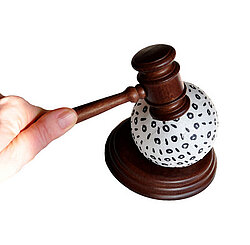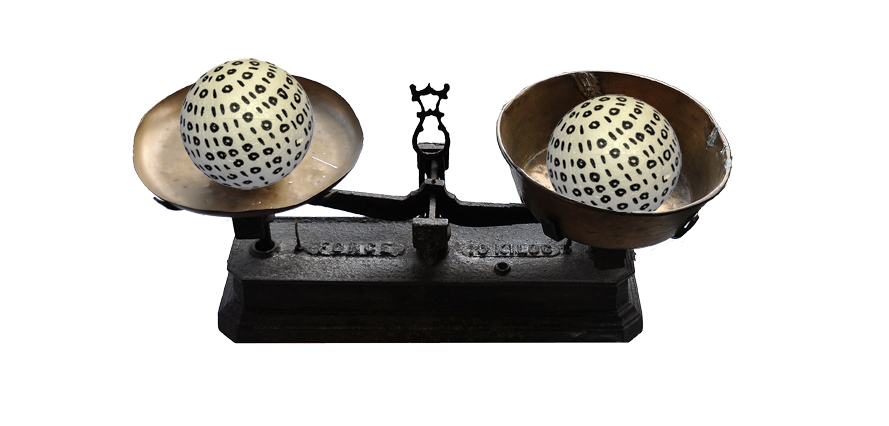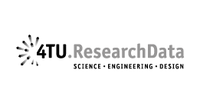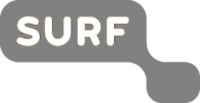There's legislation, but codes of conduct are of at least equal importance in science, and these two are not always completely aligned. | Heiko Tjalsma
When sharing and reusing data, you may have to deal with copyright and database law. You will learn more about this in this section.
Law and practice
Codes of conduct and policies stipulate that data must be shared as openly as possible. But ... is it also permitted under copyright and database law?
There are (at least) two interests involved in the use and sharing of research data. These can be in line with each other, but can also clash with each other. For example, you have the interests of an institute (which is building up a database, for example) and that of a researcher who wants to make a career.

Ideally, you don't need laws and regulations if there is friction, because a researcher has arranged in advance - and has laid such arrangement down in a data management plan - what he/she is and is not allowed to do with the data. Ideally, an institute should have a vision on research data (and a policy document): who is allowed to do what with the research data? But if, in practice, you still run into a clash of interests and nothing has been written down, you can still try to work it out together.
The following FAQs and the answers may be helpful:
Who owns research data?
Even though the letter of the law may seem strict on this one, in practice the answer to this question is rather fluid. Take, for example, the publication of articles: in principle, the university where the research was done can claim the copyright on articles. But they don't, because then they would damage the careers of their researchers (and ultimately themselves). In the case of research data, too, it depends on the context how the question of ownership is handled in practice. You can often take your data with you, but only in close consultation. Ideally, you should make an appointment in advance, for example in the appointment letter or data management plan.
The Meertens Institute employs researchers who work on the construction of various databases (Meertens Instituut, n.d.). This is the core business of the institute. In such a case, it seems logical for a researcher to leave his or her data with the research institute.
Besides, in copyright law there is a distinction between personality rights (which you always keep and are not transferable) and exploitation rights: they concern the things you are allowed to do with the data. Exploitation rights can be transferred if you draw up a contract together. But even then, the exploiting party should mention that the data was collected by you.
Is research data copyrighted?
In principle, there is no copyright on raw research data (bare facts) (SURF, 2009). Facts are free.
Only the form of these facts may be considered for protection. And that can happen very quickly, also in scientific research, because these 'bare facts' are almost always sorted in one way or another. This means that, even if the bare facts are free, you may still have to deal with copyright and database law.
Is software copyrighted?
Yes, software is a so-called creative work and then it is automatically copyrighted. That's why, if you want to distribute software, you must always have a licence that states what a user can do with it. Make sure that different licenses are compatible. Compatible licenses make it possible to combine the source code of different works to create new software. Not all licenses are compatible.
Is data in a database protected by copyright?
Database law in itself has nothing to do with the creativity or originality of the contents of the database. It is purely a matter of protecting those who have invested time and/or money in creating and making available the data collection. In the case of such a database, you must ask permission for the extraction and reuse of a substantial part of the database and/or for the repeated extraction of a non-substantial part of the database.
The data in a database may be partially or fully protected by copyright. Then again, it is the content that matters. For example, texts or photographs may be included in a database on which copyright rests. Items with copyright can be, for example, a scientific article, a film or a book. Anyone who writes, draws, photographs, composes or produces something has full automatic copyright on their 'work' or 'spiritual creation' until seventy years after their death. In order to qualify for copyright, the 'work' must have been cast in an original form and bear a personal stamp. 'Original' means that the work has not been (partially) copied. The work may well resemble another work, as long as coincidence is involved. A personal stamp means that creative choices have been made and that it is impossible for two creators to arrive at the same work.
By way of illustration: If you put raw, unprocessed data (legally: bare facts) in a table, copyright does not apply. Any other researcher could have made a similar table. A selection or arrangement of bare facts can be protected under the Databases Act if it concerns a selection or arrangement with a personal stamp.
At the moment that copyright does apply, who is the copyright owner? In principle, this is the creator of the work. But there are exceptions:
- If the work has been created as part of the employment contract, the copyright accrues to the employer;
- If a client of an investigation stipulates in the contract that the copyrights and/or database rights are transferred to him.
What do a private copy and the right to cite mean?
Suppose that, in addition to the bare facts, you also want to use a copyright-protected form of the research data. In that case, you only need to ask the creator for permission if you want to make them public and/or want to reproduce them. You do not need to ask permission for a private copy for personal use or study.
You may also use the right to cite at any time, but you may not cite more than is strictly necessary for your purpose and the name of the author and the source of the quote must be stated.
How do data archives deal with copyright?
When Professor X comes forward with data, a data archive assumes that he or she is the owner of the data. He or she authorises the data archive through a licence to make a copy of the data - subject to conditions - available to others.
How do data archives deal with orphaned data?
Orphaned data are data for which the owner can no longer be found or has died. If the data is made available in restricted access, the owner must give permission for access. And that's difficult when you can't find the owner anymore. In the licenses of DANS and 4TU.ResearchData there is an article that data automatically becomes open access when someone dies. This is not yet the case with data of which the owner cannot be reached.

In the spotlight
Frequently used legal instruments and agreements in the picture
RDM Support of Utrecht University provided researchers with an overview of frequently used legal instruments and agreements (Utrecht University, n.d.). This is what data support can look like.

Sources
Click to open/close
SURF (2009). De juridische status van ruwe data; een wegwijzer voor de onderzoekspraktijk. Retrieved from https://www.surf.nl/rapport-de-juridische-status-van-ruwe-data-een-wegwijzer-voor-de-onderzoekspraktijk
Meertens Instituut (n.d.). Databanken. http://www.meertens.knaw.nl/cms/nl/collecties/databanken
Overheid.nl. Auteurswet. https://wetten.overheid.nl/BWBR0001886/2018-10-11
Overheid.nl. Databankenwet. https://wetten.overheid.nl/BWBR0010591/2018-10-11
Tjalsma. H. Rapport m.b.t. de authenticiteit en juridische aspecten van de kerncollectie Getuigen Verhalen. Retrieved from http://dans.knaw.nl/nl/over/organisatie-beleid/juridische-informatie/DANSrapportjuridischeaspectengetuigenverhalen.pdf
Utrecht University (n.d.) RDM Support. Legal instrument and agreements. https://www.uu.nl/en/research/research-data-management/guides/legal-instruments-and-agreements





